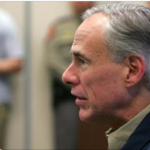First, my summary of the key things the law did:
A. It barred doctors from asking questions (in writing or orally) “concerning the ownership [or home possession] of a firearm or ammunition by the patient or by a family member,” unless the doctor “in good faith believes that this information is relevant to the patient’s medical care or safety, or the safety of others.” And, according to the panel majority, “relevant” here means relevant based on “some particularized information about the individual patient, for example, that the patient is suicidal or has violent tendencies.”
A doctor thus could not ask all patients, or all patients with children, whether they own guns, whether on an intake questionnaire or in person, even if the doctor believes that this information would indeed be useful in giving general advice about safe gun storage, the supposed dangers of any gun ownership and the like.
B. It barred doctors from “intentionally enter[ing] any disclosed information concerning firearm ownership into the patient’s medical record if the practitioner knows that such information is not relevant to the patient’s medical care or safety, or the safety of others,” with the same interpretation of “relevant.”
C. It barred doctors “from unnecessarily harassing a patient about firearm ownership during an examination.” This means, according to the panel majority, that a doctor “should not disparage firearm-owning patients, and should not persist in attempting to speak to the patient about firearm ownership when the subject is not relevant [based on the particularized circumstances of the patient’s case, such as the patient’s being suicidal] to medical care or safety.”
D. It provided that patients may “decline to answer or provide any information regarding ownership [or home possession] of a firearm,” though such a refusal “does not alter existing law regarding a physician’s authorization to choose his or her patients.” Nonetheless, it provided that doctors “may not discriminate against a patient based solely upon the patient’s exercise of the constitutional right to own and possess firearms or ammunition.” This suggests that doctors could turn away patients for refusing to answer questions about guns (so long as they are “relevant” based on “some particularized information about the individual patient”) but could not turn away patients for answering the questions with “yes, I own a gun.”
by Eugene Volokh



